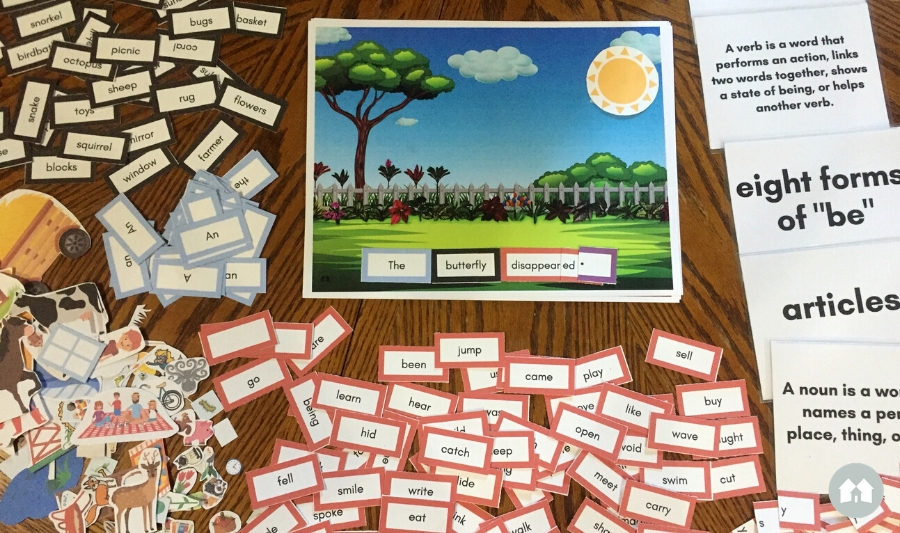I hope you all enjoyed the Nouns Around Town grammar play set we posted last month. If you missed it, you can click HERE to check it out. The download I am sharing today builds on that set. This month, instead of just naming things, we are going to introduce verbs and get our nouns busy. Along with verbs, I will briefly touch on suffixes, articles, punctuation, and sentences so your student(s) can start building their own simple sentences.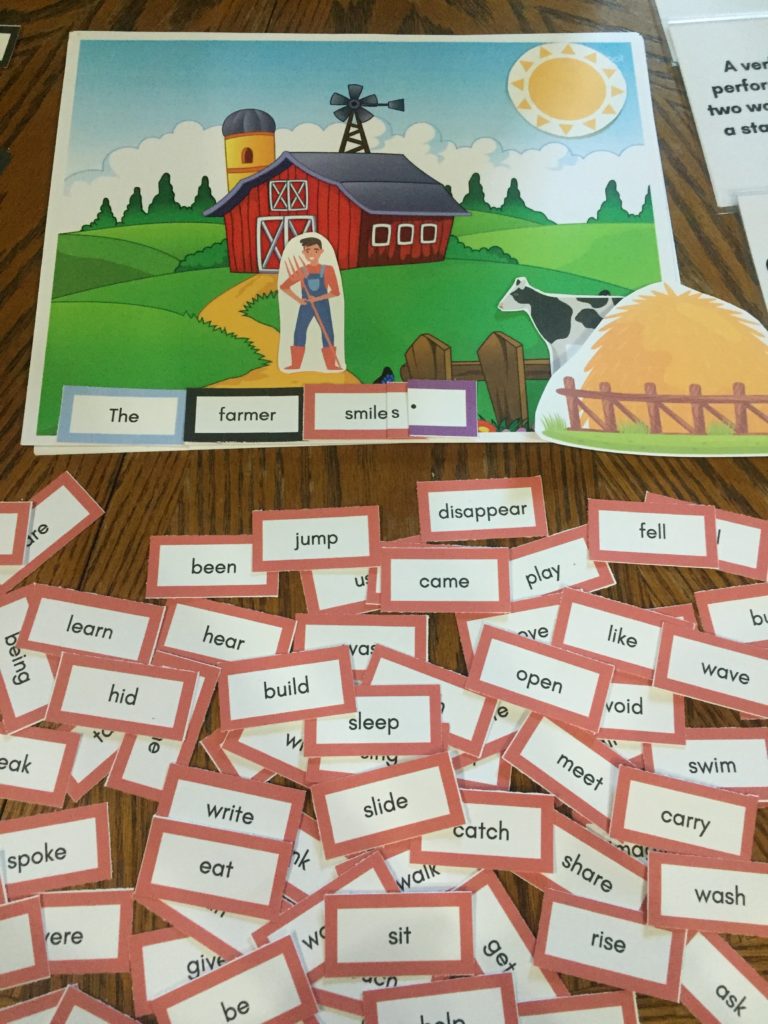
Below, shown in bold type, are some grammar concepts I have my children memorize. We’ve included flashcards for you to use to help your children memorize them, too. Just print the PDF, fold the flashcards in half, then laminate each one to create a durable teaching help. Go over the definitions with your kids once before each language lesson, and they will have them memorized without any further effort in a week or two.
Suffixes are letters added to the end of root words. We will be using the suffixes –ed, –ing, –s, and –y with our word downloads today.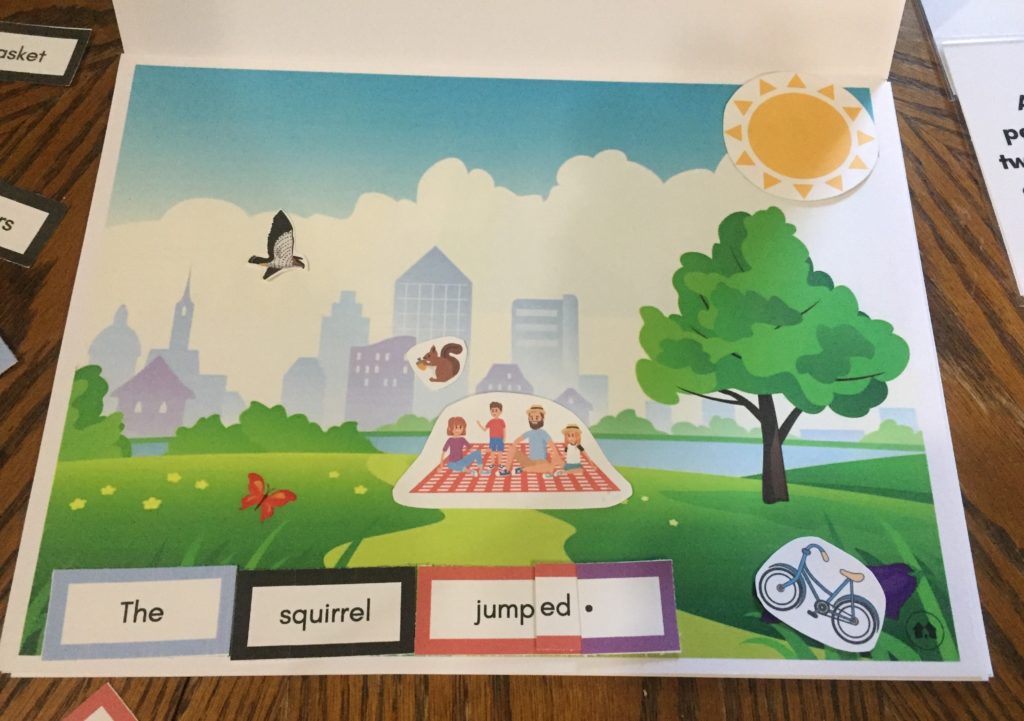
What are articles? Wikipedia states that an article is, “A word that is used with a noun to specify grammatical definiteness of the noun…” I’ve never had my children memorize that definition, but there it is if you’re so inclined. There are only three articles — a, an, and the — so they are fairly easy to remember. For kids, the biggest learning curve with articles is understanding how we use an “a” when the word following it begins with a consonant, and “an” when the word following it begins with a vowel (for example, “a pear” or “an apple”). The articles are included here today because they are sprinkled in and among many simple sentences, so I felt they would be useful as your child begins building her own.
Next: punctuation. Why is it necessary? Well, basically it just helps clarify what we are trying to say or stress in the sentences we write. If your child is having a hard time remembering to use punctuation, you might write a paragraph for them without any punctuation and let them see how confusing it could be.
If you want a good laugh, or have an older (middle to high school age) student, you might invest in (or visit your local library to borrow) the book, Eats, Shoots & Leaves, by Lynne Truss. It’s a pretty amusing examination of the whole idea of punctuation importance. 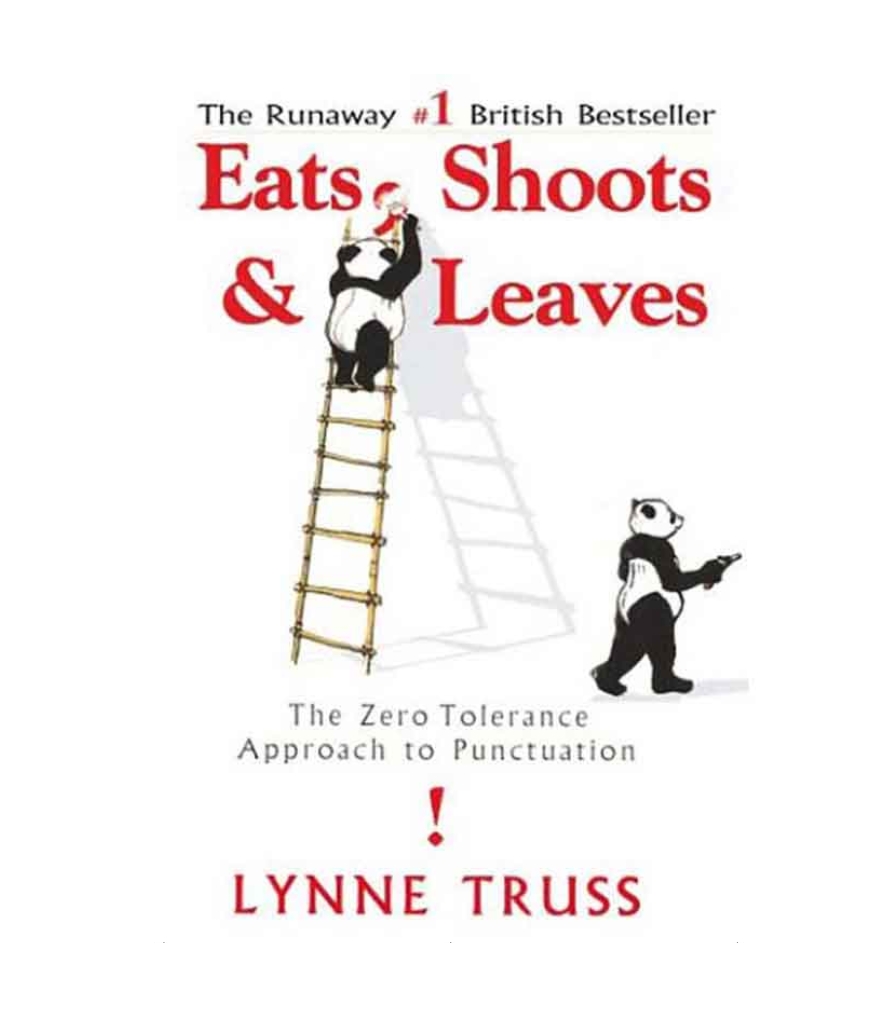
The three punctuation marks included with today’s download are the period, question mark, and the exclamation point.
- Period (.) is used at the end of sentences that make a statement.
- Question mark (?) is used at the end of a sentence that asks a question.
- Exclamation point (!) is used at the end of a sentence said with strong feeling.
It would be helpful to explain to your child that an exclamation point or a question mark is used in place of the period, thus eliminating the need for a period at the end of a sentence.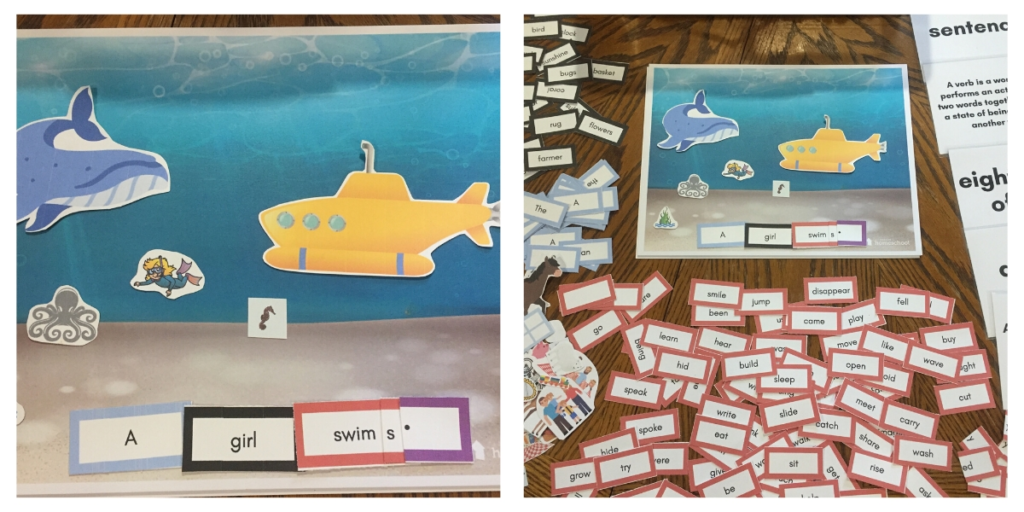
We memorize this little definition for sentences: A sentence is a group of words that expresses a complete thought. Every sentence begins with a capital letter, and ends with punctuation. Anytime my child forgets the initial capital letter or the ending punctuation, I point him back to what he has memorized, and have him look at his sentence to find and fix the mistake.
This brings us to the definition of verbs: A verb is a word that performs an action, links two words together, shows a state of being, or helps another verb.
The eight forms of “be” are: am, are, is, was, were, be, been, and being.
To play with the Nouns Around Town set using this month’s cards: download and print the PDF file, and have your child use the new words and punctuation marks — combined with their nouns from last month — to make simple sentences about the Noun Town pictures they’ve created and all the action happening in their scenes.
Explain to your child that he will be building his own sentences today with these new verbs, and that every sentence has to have both a noun and a verb. You might make up a few sentences together to get started. Keep them simple at first, making sure each sentence has a noun and a verb, as well as punctuation.
Encourage your child to read back the sentences she made, as you interact with her as she plays. The more involved and engaged you are, the more kids will enjoy this learning exercise.
Download this month’s addition to the Nouns Around Town play set:
Verbs, Articles, & Punctuation for "Nouns Around Town" Play Set
Did you miss the earlier downloads? Find them here.
 Visit them to learn more about excellent resources for Handwriting, Spelling, Science, & Guided Reading.
Visit them to learn more about excellent resources for Handwriting, Spelling, Science, & Guided Reading.
